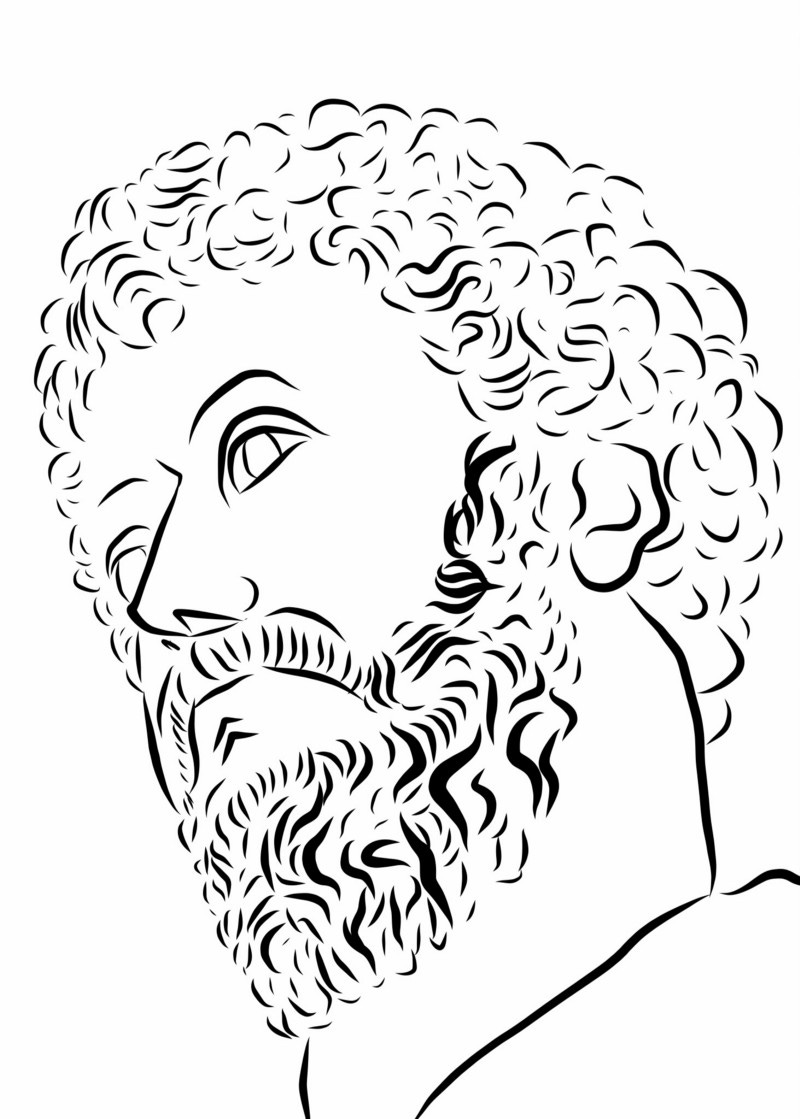Marcus Aurelius’s Guide to Living a Virtuous Life
One of the most common questions asked of Stoic philosophy is “What is and how does one live a virtuous life?”
The short answer is living a virtuous life means living the virtues of Stoicism, particularly, the virtues of Prudence (Practical Wisdom), Justice (Morality), Temperance (Moderation), and Fortitude (Courage).
But these are somewhat abstract ideas to someone who isn’t familiar with the philosophy, or who only knows Marcus Aurelius as a Roman Emperor who died a long time ago.
Luckily for us, Marcus left us a guide in how to live through his mental journal, Meditations, which survives today.
In Meditations, Marcus lays out exactly what it means to live a virtuous life, living in accordance with Nature, and how to live the virtues fully. In return, he provides us with a crash course in Stoic philosophy, and he does it in a single journal entry.
“How to act:
Never under compulsion, out of selfishness, without forethought with misgivings.
Don’t gussy up your thoughts.
No surplus words or unnecessary actions.
Let the spirit in you represent a man, an adult, a citizen, a Roman, a ruler. Taking up his post like a soldier and patiently awaiting his recall from life. Needing no oath or witness.
Cheerfulness. Without requiring other people’s help. Or serenity supplied by others.
To stand up straight — not straightened. — Marcus Aurelius. Meditations. III.5
Let’s look more closely:
Never under compulsion, out of selfishness, without forethought with misgivings.
We must learn to act with purpose and devotion. Whatever actions are taken, they should be taken selflessly. No one has control over us or our actions, therefore, when we act, we must remember to act on our own accord. We are not taking action in order to receive a response from someone else — we are taking action because that is what is good for us. Alternatively, we do not respond just to respond. Our counter-actions to someone must be thought out, not reactionary, and done with purpose.
Don’t gussy up your thoughts.
There is no need to overthink or embellish our thoughts. We need to see the reason and truthfulness within them, understanding the impressions forming and the value-judgments we are applying.
No surplus words or unnecessary actions.
Speak and act when necessary, with purpose and intention. Marcus reminds himself of this in several different ways throughout Meditations, but it is because it is such a needed reminder in our day-to-day lives. Say and do what needs to be done.
Let the spirit in you represent a man, an adult, a citizen, a Roman, a ruler. Taking up his post like a soldier and patiently awaiting his recall from life. Needing no oath or witness.
While we are only in control of ourselves and our own actions, it doesn’t mean we are here to silo ourselves off from society. On the contrary, we are here to build each other and create the foundation for the next generation. We must remember that our actions are witnessed by others and thus have the ability to influence. Therefore, we should remember to live a virtuous life and assist others in living one as well.
Cheerfulness. Without requiring other people’s help. Or serenity supplied by others.
We are reliant upon ourselves and only ourselves. While we have the ability to influence and be influenced, it does not mean that we are reliant upon others. Our happiness must come from within and not from others or external objects. We are content with ourselves and our actions, not looking or seeking external validation.
To stand up straight — not straightened.
We need no one but ourselves to live virtuously. The strength to live a virtuous life lies within each and every one of us. This is a muscle that continually is strengthened over time so that eventually, we’re no longer reminding ourselves to live virtuously, we just are as a natural progression of our actions.
Just like us, Marcus needed to remind himself of the tenets of Stoicism and what he was attempting to achieve within himself everyday. This quote is a great example of Marcus reminding himself of the Four Cardinal Virtues of Stoicism and creating that reminder for himself when times became more difficult.
Marcus teaches us that to live a virtuous life, we need to live a life of courage, purpose, and devotion. We need to embody Prudence (Practical Wisdom), Justice (Morality), Temperance (Moderation), and Fortitude (Courage). We are reliant upon ourselves, but at the same time are there to be a member of society.
PS: If you liked this article and would like to read more of my content, please feel free to sign-up for my monthly newsletter here.
PPS: This article contains affiliate links to the books I referenced. This being said, I have read and evaluated each of the books prior to my recommending them through the links within this article.



